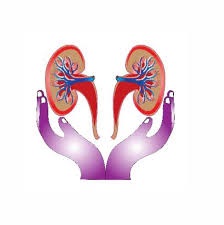Research
Clinical and Translational Research
A three-year training program with a first clinical year, followed by two research years focusing on epidemiology, clinical trials, and outcomes-based or other clinical and translational studies.
Most individuals completing this training seek to pursue academic clinical or translational outcomes research careers. Trainees are supported in their research years by an NCOR-KUH training grant, and must be U.S. citizens or permanent residents.
Curriculum
- Optional formal coursework leading to a certificate or master's degree in epidemiology (MPH or MS) with emphasis on epidemiology, biostatistics, data management, and research design. Translational topics in other fields may be pursued, e.g. pharmacokinetics, and biomarker discovery.
- Seminars and tutorials in research design, research methodology, and statistical methods.
- Biomedical research integrity training is required to retain NIH training grant support.
Collaboration
Clinical/translational kidney research is conducted predominantly through our Kidney Research Institute, a unique collaboration between Northwest Kidney Centers and UW Medicine. Our focus is on developing early detection, prevention, and treatment of kidney disease and its complications. The Kidney Research Institute closely collaborates with our investigators at the Veteran’s Affairs Health Services Research & Development. Our basic science kidney research is concentrated at our South Lake Union campus.
Fellows gain expertise in a broad range of public health problems by collaborating with over 150 faculty from the five departments within the School of Public Health.
- Biostatistics
- Environmental and Occupational Health Sciences
- Epidemiology
- Global Health
- Health Services
Courses in the Department of Epidemiology provide a rigorous introduction to observational studies and randomized controlled trials, primarily as they relate to the investigation of disease etiology, evaluation of diagnostic and screening tests, therapeutic intervention, and disease prognosis.
Courses in the Department of Biostatistics cover quantitative techniques for analyzing data from medical studies: statistics, principles of estimation and hypothesis testing, sample size, evaluation of statistical significance, and survival analysis.
Our School of Public Health (recently ranked #3 in the World) and Biomedical Graduate Schools offer our fellows opportunities for formal didactic training in clinical, translational, and basic research methods.
Basic Science Research
The objective is to prepare fellows for an independent career as a physician-scientist. The three-year program starts with a first clinical year followed by two years of mentored research training. This track allows trainees to acquire skills predominantly in the molecular, biochemical, and cellular aspects of kidney-related research and to understand how this basic research translates from bench to bedside. Our NIH TL1 training grant supports most individuals undertaking basic research training during their research years.
- Emphasis will be on the acquisition of laboratory skills, experimental design, data analysis, and an in-depth understanding of the relevant research literature
- Supplemental training and experience in Immunology, Biochemistry, Pathology, Biologic Structure, and other departments
- Options for formal coursework in molecular biology, statistics, and mechanisms of disease. Trainees may pursue other topics depending on their interests.
- Biomedical research integrity training is required to retain NIH training grant support.
We strongly encourage Ph.D.s to apply. The goals are to enable trainees to utilize their molecular and cellular skills and knowledge towards disease-based processes. Ph.D. trainees will specifically focus on kidney injury and repair.
MD/Ph.D. Curriculum
- Cell Culture basic methods with cell lines, generation of primary cells development of cell-based assays with examples of functional readouts.
- Molecular biology: from PCR methods through to molecular cloning of genes. Use of bacteria to generate copies of DNA sequencing.
- Mouse genetics: modern genetic tools and pitfalls
- Bioinformatics platforms and their uses: multiplexing, arrays, mini-arrays. Analysis of data.
- Designing experiments: controls, timepoints, timecourses, critical endpoints, basic statistical approaches
Ph.D. Curriculum
- Nephrogenesis and anatomy
- Kidney physiology
- Kidney pathologies, terminologies, and specialized cells of the kidney
- Kidney-related gene defects in humans
- Systemic diseases that have kidney disease as a component
- Vascular and metabolic, and endocrine consequences of chronic kidney disease




